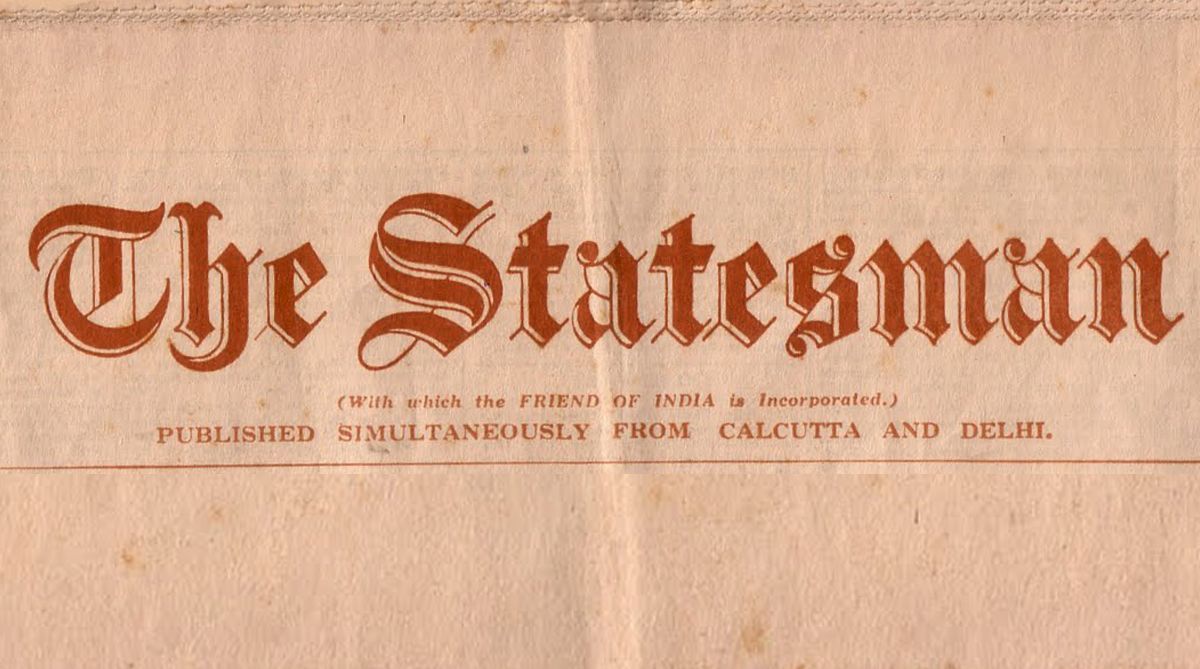A New Day, A New Dawn
There is a surprise for the readers. A special Poila Boishakh gift from none other than West Bengal chief minister Mamata Banerjee. Who has written a piece for this special edition.
On this day a century ago, these were some of the news items The Statesman readers got to read about India and the world.

OCCASIONAL NOTE
Sir Fairless Barber, the doyen of the Southern Indian planters, is clearly an optimist. Not merely does he believe, as he expressed himself at the Planters’ Conference the other day, that “the end of the war is so near that our transport facilities will soon be in a position to cope with all our requirements,” but he looks determinedly upon the bright side of the increasing sale of foreign tea in India. “I agree,” he remarked, on the same occasion, “that we should push Indian tea for all we are worth, and I admit that that is the object of the cess funds, but it seems to me we should be qualifying for bedlam, after having induced people to take to tea drinking perhaps after some difficulty in the first instance, and after having fostered a healthy demand amounting to an incurable habit, if we cut off the full supply because internal carrying facilities are against the delivery of the full supply while external facilities permit of it.” Sir Fairless Barber also maintains that every pound of tea drunk helps the producers of tea all the world over, and this he puts forward as an additional reason for not grudging the foreign producers the vogue which their tea is obtaining under the present abnormal conditions in India. One gathers, however, that he would be strongly inclined to protest if he saw reason to believe that the present abnormal conditions would be permitted to continue in normal times.
HYDERABAD MUNICIPALITY TO BE RESTORED
Advertisement
In view of the recent supersession of two municipalities in Bengal the following Press note issued by the Bombay Government is of interest:- Inasmuch as the term of office of the committee of management appointed to carry on the municipal affairs of Hyderabad on the supersession of the municipality of that city expires on December 5th, 1918, His Excellency the Governor-in-Council has taken occasion to review the work of the committee and desires to record his appreciation of the satisfactory results achieved by it in face of serious difficulties. The first task of the committee was to re-establish the financial position of the city. Whereas in the previous three years the municipality had expended Rs 1 and half lakhs in excess of its current income by drawing upon its reserve funds and by the sale of lands and the misapplication of the sale proceeds, the committee of management has, by a thorough policy of retrenchment and economy, in two years effected a saving of Rs 1 and one fourth lakhs by reducing current expenditure below current income.
BOMBAY S NEW GOVERNOR
It is notified in today’s issue of the Bombay Government Gazette that Sir George Ambrose Lloyd, Governor-designate of this presidency, is expected to arrive in Bombay at daybreak on Saturday, the 14th instant, by the S.S. Chyebassa, and will be received on arrival with all honours due to his position. Sir George will leave the Chyebassa at 8-15 A.M. and will disembark as usual at Apollo Bunder. Another notification in the same issue announces that His Excellency Lord Willingdon will depart for England in the S.S. Chanda from Apollo Bunder the same day at 5 P.M. All honours due to the Governor of Bombay will be paid to His Excellency until he passes Aden.
“FOOD CONSERVATION” WEEK
“Food conservation week for the relief of the world” opened yesterday with an appeal from Mr. Hoover, which was read in all the churches of the country, to the people to renew their service to mankind by helping through food conservation to feed three hundred millions in the north of France, Belgium, Central Russia, South Europe, Poland and Armenia. The appeal says: “The end of the war has not released Americans from the Government’s pledge to the inter-Allied Food Council to meet the Allied food programme. The same populations must be fed, and until another season has passed they cannot feed themselves. Besides supplying the troops, to which we are already pledged, we now have the splendid opportunity and obligation of meeting the needs of those millions in hitherto occupied territories who are facing actual starvation.”
PROBLEM OF GERMAN COLONIES
Mr. Walter Long, speaking at Bristol, disclosed the fact that he was a member of the committee mentioned by the Premier to consider the terms that should be demanded from Germany. Therefore he could emphasise the fact that the Empire had no need for anxiety on the ground of undue tenderness on the part of Great Britain and the Allies. Although he did not desire to enlarge the British Empire he could not see any alternative solution of the problem of the German colonies than their inclusion in the Empire. Where natives had been consulted they had overwhelmingly favoured that course.
Advertisement